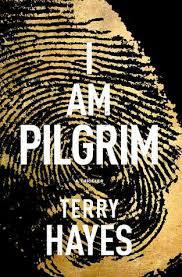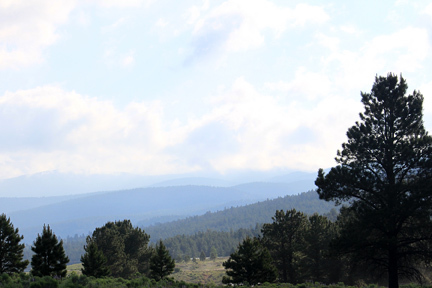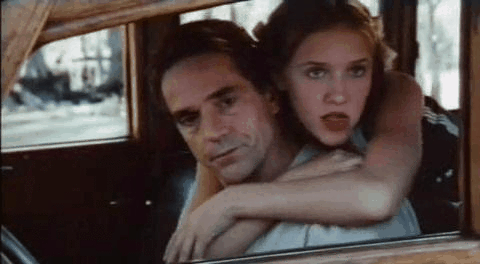The first act of The Great Silence at least implies some traditional Western tropes. Jean-Louis Trintignant is a gunslinger who fights with evil bounty hunters. Frank Wolff is the new sheriff. Klaus Kinski is one of the evil bounty hunters. Wolff’s got political stuff, or at least the script implies there’s going to be political stuff, just like the script makes implications about Trintignant and Kinski. They’re not red herrings, but director Corbucci has something to say about the Western genre and he’s getting his pieces in order.
And, frankly, that first act is a little plodding. Sure, the winter setting is cool–Corbucci has no interest in the town other than as a setting for his action, so getting to know it is a passive experience, unnecessary for the narrative but so gorgeous snow covered–and Kinski’s immediately awesome. Well, he’s immediately different. It takes a couple scenes before it’s clear he’s just going to be awesome throughout, like he’s the only one who gets to know the film’s destination.
After running around in circles–literally–Corbucci gets Silence into the second act and the film starts to get a lot different. None of the Western tropes implied are getting followed up on. I mean, Trintignant’s even revealed to be hunting bounty killers because they killed his parents. Corbucci is going all out with the possible tropes and none of them really stick. Silvano Ippoliti’s photography is too heartless for them to stick. Even the Ennio Morricone score bucks sentimentality and nostalgia; it’s not a particularly successful score, but it is an effective one.
Instead, Silence becomes Wolff’s story. Turns out Luigi Pistilli’s Mr. Big is running the bounty hunters–that political subplot possibility–and Wolff’s going to do whatever it takes to keep things apolitical and legal. There’s a lot about legality in Great Silence; Corbucci plays just enough into Spaghetti Western expectations to get away with a lot of exposition and a lot of sentimentality. The love scene between Trintignant and Vonetta McGee (as the woman who hires him to avenge her husband–against Kinski, of course)–their whole romance–is just a subplot in what’s first Wolff’s film and then Kinski’s. Even though Trintignant is playing the title character–he’s The Great Silence–Corbucci kicks the genre around enough to allow the hero to be another player and a silent one at that.
See, Trintignant isn’t speaking. Those bounty killers who killed his parents made him mute. His whole performance is stress fractures in stoicism, which makes the whole love story subplot even better. It’s also a device for Corbucci’s commentary–the hero, though present and active, is removed from the viewer’s experience of the film.
Kinski’s amazing. It’s his movie. Wolff’s great, McGhee’s great. There’s a lot going on in the second act, including some nice stuff from Marisa Merlini too. Corbucci’s going for better performances than one expects from a Spaghetti Western; he’s refusing to let them be caricature. After threatening it for the first act; presumably to get the viewer to pay attention.
And then there’s the finish, which is sort of what the third act to the first act would look like–with a more traditional second act–only Corbucci’s run it through that devastating second act.
So the big question–since I didn’t start writing this response with a star rating decided on–do Corbucci’s successes make up for the film’s problems. And they do. The Great Silence has some slow parts, some seemingly needless shots, some way too long takes, but Corbucci does bring it all together and make something fantastic. It’s exceptional.
 ★★★★
★★★★
CREDITS
Directed by Sergio Corbucci; screenplay by Vittoriano Petrilli, Mario Amendola, Bruno Corbucci, and Sergio Corbucci, based on a story by Sergio Corbucci; director of photography, Silvano Ippoliti; edited by Amedeo Salfa; music by Ennio Morricone; produced by Attilio Riccio and Robert Dorfmann; released by 20th Century Fox.
Starring Jean-Louis Trintignant (Silence), Klaus Kinski (Tigrero), Vonetta McGee (Pauline Middleton), Frank Wolff (Sheriff Gideon Corbett), Marisa Merlini (Regina), Mario Brega (Martin), and Luigi Pistilli (Henry Pollicut).
RELATED
- OTHER FILMS DIRECTED BY SERGIO CORBUCCI
- OTHER 1968 RELEASES
- OTHER ITALIAN FILMS
- More





